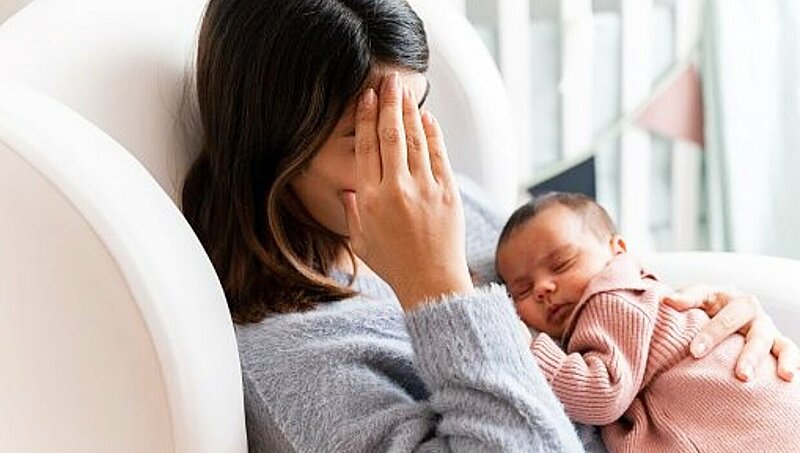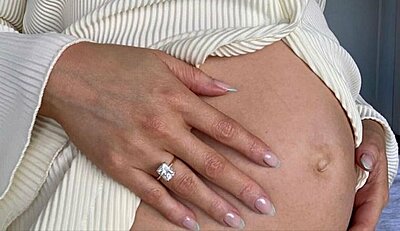Pregnancy and childbirth are life-changing experiences filled with joy, excitement, and sometimes anxiety. But after the baby arrives, many women face unexpected emotional challenges, including post-pregnancy depression (PPD). This condition is more common than people realize and can affect not just the mother but the whole family. Knowing the symptoms, causes, and how to handle post-pregnancy depression can make a big difference in recovery and well-being.
What Is Post-Pregnancy Depression?
Post-pregnancy depression, or postpartum depression (PPD), is a serious mental health condition that happens after childbirth. It’s normal for new moms to feel a bit emotional or experience "baby blues" because of hormonal changes. However, PPD is different—it’s more intense and lasts longer, making it hard for mothers to care for themselves or their baby.
Gut Health for Women: Why It’s Key to Overall Wellness
Common Symptoms of Post-Pregnancy Depression
PPD can look different for everyone, but here are some common signs to watch for:
- Persistent Sadness or Hopelessness: Feeling down or empty most of the time.
- Extreme Fatigue: Feeling drained both physically and emotionally, even after resting.
- Irritability or Anger: Getting frustrated or angry easily without clear reasons.
- Anxiety: Constantly worrying about the baby’s health or safety.
- Difficulty Bonding: Feeling disconnected from the baby or struggling to form a connection.
- Sleep Problems: Trouble falling asleep or sleeping too much, even when the baby is asleep.
- Changes in Appetite: Eating a lot more or less than usual.
- Harmful Thoughts: In severe cases, having thoughts of harming yourself or the baby (this requires immediate help).
10 Tips for Avoiding Sinusitis This Winter
What Causes Post-Pregnancy Depression?
PPD is caused by a mix of physical, emotional, and lifestyle factors, including:
- Hormonal Changes: Hormone levels drop quickly after childbirth, which can affect mood.
- Sleep Deprivation: Taking care of a newborn often means little rest, which can make emotions harder to manage.
- Big Life Changes: Adjusting to parenthood can feel overwhelming.
- Past Mental Health Issues: A history of depression or anxiety increases the risk of PPD.
- Lack of Support: Feeling lonely or unsupported by your partner, family, or friends can make things worse.
14 Simple Ways to Detox Your Body for a Healthier Life!
How to Handle Post-Pregnancy Depression
If you or someone you know is dealing with PPD, remember—it’s treatable! Here are steps to help manage it:
- Get Professional Help: Talk to your doctor or a therapist, as counseling like cognitive behavioral therapy (CBT) or medication may help, but always consult a doctor first.
- Build a Support System: Ask family or friends for help with tasks or emotional support, and join a support group for moms who understand what you’re going through.
- Take Care of Yourself: Rest when the baby sleeps, enjoy activities like reading or walking, and maintain a healthy diet to support your well-being.
- Communicate Openly: Share your feelings with loved ones and be honest about the type of help you need.
- Set Realistic Expectations: Focus on what you can manage, don’t aim for perfection, and ask for help when needed.
- Get Moving: Engage in gentle activities like walking or yoga to lift your mood by releasing endorphins.
- Consider a Postpartum Doula: A doula can assist with baby care and household chores, helping to reduce stress.
How to Support Someone with Post-Pregnancy Depression
If you’re a partner, family member, or friend of someone with PPD, here’s how you can help:
- Be Patient: Understand that PPD is a real condition and not something they can just "snap out of."
- Help Out: Offer to babysit, cook meals, or do chores to give them a break.
- Encourage Professional Help: Gently suggest seeing a doctor or therapist if they haven’t already.
- Listen: Sometimes, being there to listen without judging is the most supportive thing you can do.

















